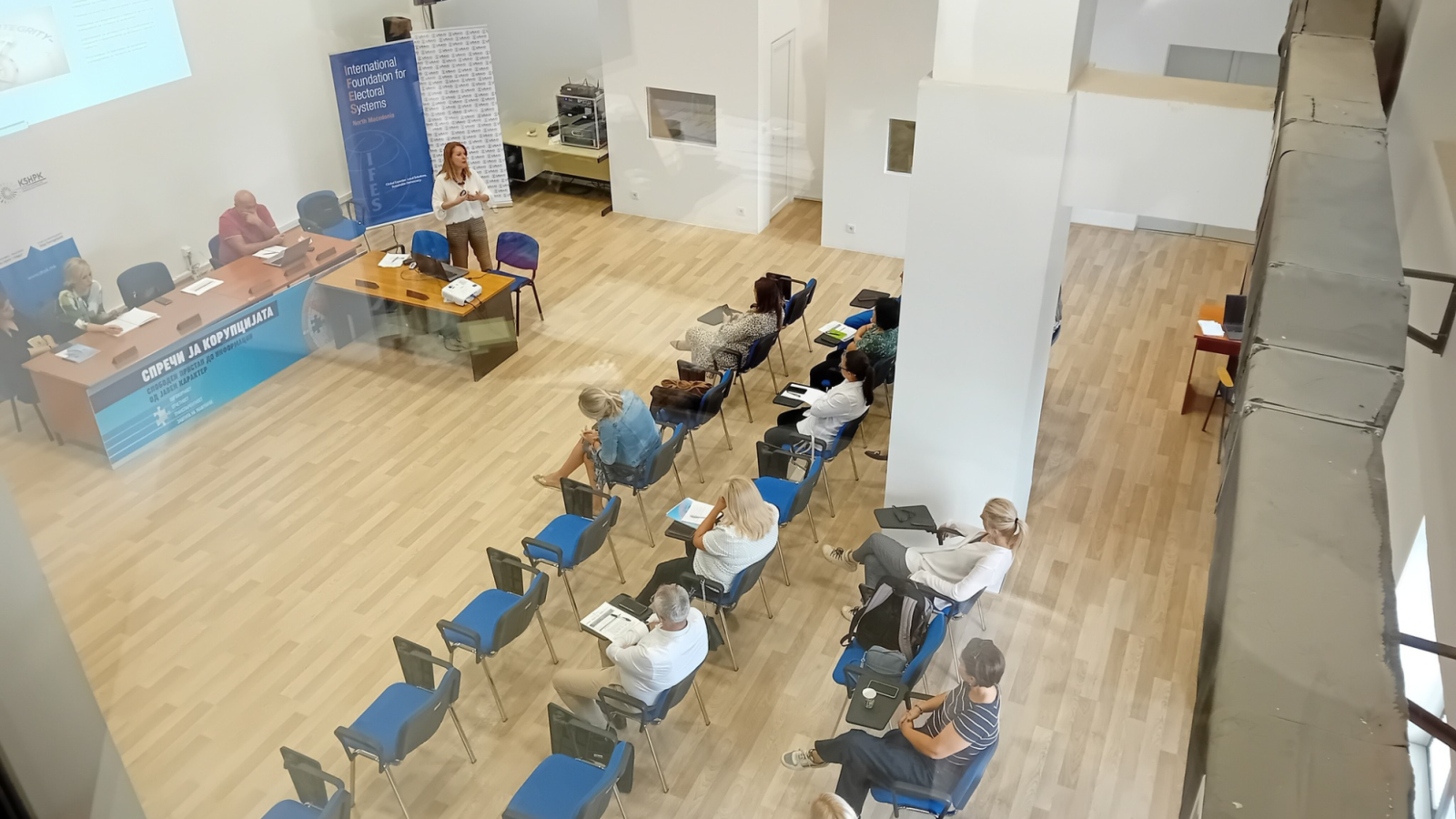
Overcoming Challenges to Deliver Effective Governance in North Macedonia
Vera is a firm believer in democracy. She was appointed as an integrity officer in 2023 in North Macedonia to contribute to combatting deep-rooted corruption and promoting trust in the work of public administration. Her optimism is what has kept her motivated to foster transparent government despite increasing frustrations around what many see as an ineffective integrity system in North Macedonia.
Vera is one of approximately 100 “integrity officers” across the country, appointed by local and central institutions to support the implementation of the country’s National Strategy for Prevention of Corruption and Conflict of Interest, developed by the State Commission for the Prevention of Corruption (SCPC).
This is no easy task. Integrity officers are often required to immediately dive into their roles, leading the process of drafting documents and rulebooks and monitoring their delivery in designated institutions.
But given limited human and financial resources, many integrity officers aren’t properly informed on what is required of their role and the larger picture of achieving strategic outcomes.
“[At my institution] we don’t have guidelines on the use, reporting, and monitoring of business vehicles,” Vera said, sharing a relevant example on the use of state property. “Speaking frankly, we have only one vehicle. However, there have been rumors that sometimes employees use it for private purposes, leaving others who really need it to use the taxi service.”
Frustrations about the ineffective implementation of the integrity system at the local and central levels are reflected in national strategy monitoring efforts, which are facilitated by the SCPC and were supported by IFES in 2023.
“The absence of integrity, the strong political influence, especially when hiring through nepotism, cronyism, coupled with the impunity, the absence of transparency, digitalization all contributes to creating such a climate,” Biljana Ivanovska, the former president of the SCPC, said. “It is a high time for decision makers to finally wake up and make and their contribution because no one else can organize our country if we ourselves do not try to do it.”
Under the Anti-Corruption and Integrity (ACI) Activity, implemented by IFES in North Macedonia, the SCPC led a comprehensive education program for integrity officers. More than 80 integrity officers learned about the fundamentals of the integrity system and the challenges and obstacles for implementation, leading to 53 new integrity declarations signed by various state institutions at the central and local level.
Eager to make her contributions to the integrity system in her institution, Vera actively engaged in the program. While she primarily worked on procurement processes, she felt that the training program was needed to expand her knowledge on other duties expected of integrity officers, particularly using established reporting processes for compliance with the national strategy to inspire her own institution’s processes and procedures.
With feedback from participants like Vera, IFES collaborated with the SCPC and the State Audit Office (SAO) to certify a pool of public servants in corruption risk analysis. Over the course of ten (10) months, 125 certified auditors, integrity officers, and institutional internal audit managers completed the International Certificate in Corruption Risk Management, delivered by the Chartered Institute for Public Finance and Accountancy. This certification creates common professional standards, language, and understanding within a global community of practitioners and ensures sustainable institutional and professional integrity commitment.
As a result of this certification, North Macedonia joins the ranks of countries with qualified and knowledgeable auditors, specifically on corruption risk management.
“This program does not just improve our internal procedures, but also will significantly advance the way we conduct the auditing in other institutions,” noted the General Auditor and Head of SAO, Maksim Acevski. “We are undoubtedly on the right track in terms of creating a preventive environment in the fight against corruption and other types of illegal behavior.”
“We have not reached the final checkpoint, but we are closer to it compared to last year,” the SCPC’s representative said. “[IFES] support came at a moment when we faced negative perceptions among citizens on the spread of corruption in the country as well as intensified scrutiny of the international community on our national efforts to improve our country’s fight against corruption.”
ACI’s overall objective was to strengthen the oversight mechanisms that prevent corruption and improve transparency in the country’s governance system. This project was implemented by IFES in North Macedonia from through 2023 and was funded by USAID.










